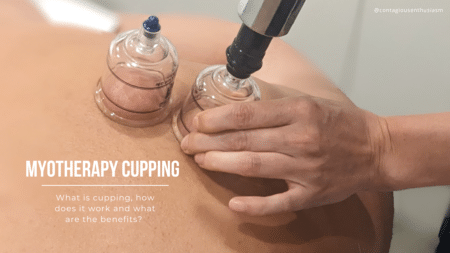40 something and female? Time to get ready for a transition
I’m 40 something and my mind and body have changed significantly in the last decade. It’s been subtle and gradual. Having kids definitely changed some things. However, you don’t need to have had kids to feel or see the changes that occur as you head into your 40’s.
A change is happening
It is not uncommon for women to experience energy fluctuations, sleep issues, a lack of mental clarity, bloating, wind, irritability, premenstrual symptoms that last a whole week, periods that are heavy, light or erratic and weight gain that becomes difficult to shift no matter how well you eat and exercise.
Let’s blame your gut and hormones for it
Many of these health issues come up when digestive health is not great or there is a change in hormones or both. When you fail to absorb what you eat well you are missing out on crucial nutrients from your diet that help keep the body balanced. When you have a gut microbiome that is out of whack you see systemic problems of inflammation, oxidative stress and poor detoxification.
The change in hormones being produced at this age stage is HUGE. The beautifully balanced thyroid, blood sugar, stress and reproductive hormones you may have had in your 20’s and 30’s starts to change. The impact on your health picture is big.
Peri menopause can begin in your early 40’s
Once we hit our 40’s we start to have episodes of not releasing an egg at every ovulation. Estrogen and progesterone levels tend to drop around this time and we can be releasing a follicle but not an egg. As your egg reserves drop your Inhibin A and B drop. Inhibin A and B are involved in production and release of follicle stimulating hormone (FSH). When inhibin A and B drop we see a rise in FSH. FSH surges manifest as peri menopausal signs and symptoms.
More hormones changes!
What we also see is a change in other hormones once we hit our 40’s. It’s like playing dominos. You see one hormone affected and it sets off a chain reaction of changes in other hormones in the body. I spend a lot of time coaching women in their early 40’s about managing and preserving their stress response because your stress hormone, cortisol increases. When cortisol increases we see insulin (our blood sugar regulating hormone) also rise. So add in sugar cravings and eating too many carbs and you see a trigger of cortisol release AND insulin too.
We also see a drop in thyroid function. Thyroid hormone is responsible for maintaining healthy metabolism, regulating the body’s thermostat, managing energy levels, weight control and mood amongst many other things. The thyroid is called the master gland for a reason.
So with high cortisol, high insulin, declining thyroid function, surges of FSH and a drop in estrogen the manifestation is less ovulation, irritability, that lovely increase in weight distributed across your middle, fatigue, trouble with sleep, poor stress tolerance and having trouble with regulating your body’s thermostat (hot flushes!). Sound a bit like menopause? Yep. That is where we start heading.
What you can do for a smooth transition
What you can be doing to have a smooth transition into menopause is to put some great habits in place now.
1.Exercise
Doing regular strength training for muscles to develop and to increase muscle mass is crucial. Muscle acts as a buffer to insulin and sugars, especially thigh and glute muscles. Get stuck into those glute bridges and squats ladies!
- Manage your stress well
Every woman needs to find a way to manage their stress when it arises. By using mindfulness techniques like meditation or doing yoga or pilates you will be able to release stress on a regular basis.
- Eat a low sugar diet
By keeping the carb load down you can help reduce unnecessary spikes in extra cortisol. Every time you get stuck into the chocolates and lollies think about that tyre around your waist you are creating. Weight gain that is insulin and cortisol driven happens around your abdomen.
- Don’t smoke
This goes without saying but the reason being in this case is that we want to increase blood flow to the follicles at the ovaries to increase Inhibin A and B production. Smokers and people with high cholesterol or anaemia tend go into menopause earlier because they have less blood flow to the ovaries.
- Support liver detoxification
You may not know this but the liver plays a vital role in women’s hormone balance and in hormone feedback. It helps regulate our estrogen and progesterone and so laying off drinking excessive amounts of alcohol and taking too many medications takes the load off the liver’s detox pathways. Alcohol also reduces progesterone and inhibin, therefore causing more FSH to be released and this manifests as menopausal flushes.
Eating lots of Brassica family vegetables (think broccoli, cauliflower, cabbage, kale, brussel sprouts) helps the liver to detoxify and excrete hormones our body no longer required into the urine.
- Consider eating more phytoestrogens
For women that are getting into peri menopause territory having some phytoestrogens in the diet can be beneficial. By having foods that weakly engage the estrogen receptors in the body you can see an improvement in hormonal symptoms.
Red Clover tea, flaxseeds, legumes and soy products all help in this department. I know promoting the consumption of soy is controversial but it can have it’s place if you are woman with low estrogen levels. Check your hormone levels with a practitioner before you hit the tofu and if you are going to eat soy it has to be non-GMO, organic, whole bean products. Drinking soy milk doesn’t count.
Want to learn more about how you can reset your health?
Join me at my Women’s Health Reset information night upstairs at Contagious Enthusiasm Hampton on Wednesday 1st May 2019 at 6pm. Get a babysitter or swing by after work for a glass of wine before dinner to talk all things women’s health. It will be a great opportunity to learn more about feeling magnificent again!
Book here
By Susan Hunter- Naturopath







